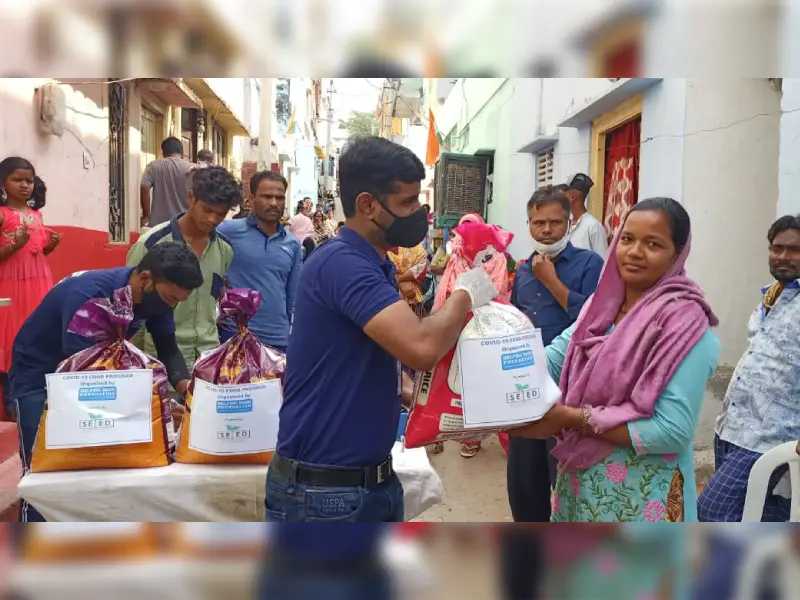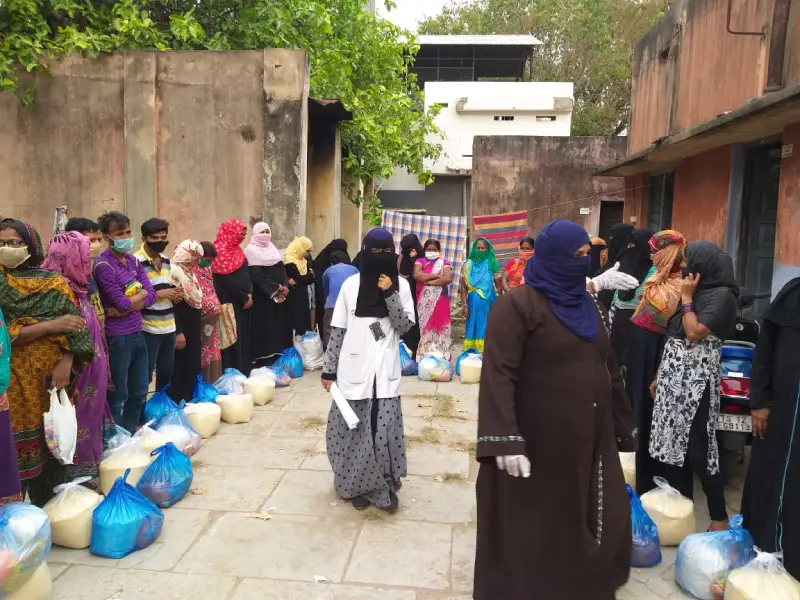Silver lining of COVID: Hyd muslims are paying 'zakat' in advance to help the poor
By J.S. Ifthekhar
Hyderabad : Farzana couldn't believe her good fortune. She has enough money and provisions to see her through Ramzan. Last year she had to make several rounds of the houses she worked to get barely enough to celebrate Id. But now this maidservant of Afzalsagar has landed a bounty as it were even before the month of fasting commenced.
Every cloud has a silver lining. So is Covid-19. While its ferocious march is tugging at heartstrings, it is also leading to loosening of purse-strings. Though Ramzan is nearly a week away, the well heeled and comfortably placed Muslims are going all out to reach succour to the distressed and needy in the community.
This time round many families are paying their annual 'zakat' in advance so that the needs of the poor and daily wage earners could be met, particularly at a time when the lockdown has deprived many of their lives and livelihoods. Zakat at the rate of 2.5 percent of the total wealth accumulated over the year is obligatory on all Muslims who have money in excess of their needs. Although the annual charity is not linked to the month of Ramzan, many prefer to donate during the month of fasting to garner more virtues.
The local mosques are the place where the zakat is given away usually since the needy gather here in good numbers. Madrasas, which depend largely on community donations, are expected to see a dip in their revenue as their 'safeers' (representatives) will not be able to go around to collect zakat this year because of the lockdown. However, some think the zakat donations are going to be much more this year as many see the pandemic as a divine curse and feel the best way to extinguish the wrath of Allah is through almsgiving.

With the mosques now shuttered zakat givers are turning to various welfare organisations to handover their zakat, fitra and sadqa (voluntary charity). A number of charitable organisations are actively taking part in extending help to the poor ever since the lockdown came into force. The Jamate Islami Hind, Telangana and the Safa Baitul Maal are in the forefront as usual and have redoubled their welfare activities. The Payam-e-Insaniyat forum founded by renowned scholar, Abul Hasan Ali Nadwi, is also quite active in the present crisis. Its volunteers have so far distributed more than 5000 ration kits containing essential items to poor families in different parts of the city. The zakat donors are contributing generously to the ration kits priced between Rs. 1000 to Rs. 1350 each. They consist of essential commodities like rice , wheat flour, tuwar dal, oil, sugar, tamarind and other such items. "The unprecedented crisis caused by Covid-19 demands extraordinary sacrifice", says Siddique Nadvi and Mohd Salman of Payam-e-Insaniyat.
Some organisations like Helping Hand Foundation (HHF) are leveraging the zakat money to address the public health crisis in economically backward Muslims. Under the present lockdown situation its volunteers are putting in heroic efforts to identify and supply ration packs and also cooked food to the deserving families. The HHF has received donations of Rs. 1 crore from all over the world, mostly from US. "I thank the donors for coming to the aid of the poor in the community", says Mujtaba Hasan Askari of HHF.
Ramzan is the month of spiritual cleansing and piety comes to fore even among the not so devout Muslims. But now the pandemic has made everyone a little more generous and considerate. Just do not donate but make a difference, if you can - is the motto.